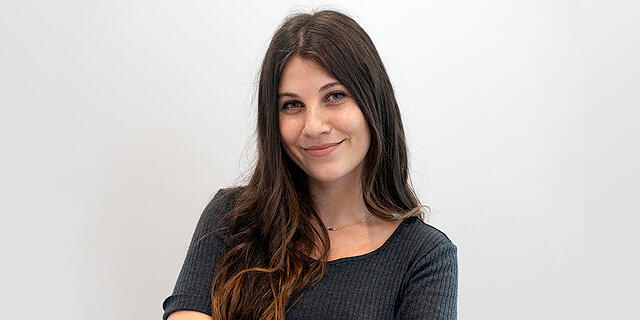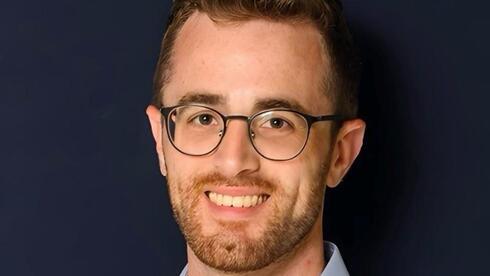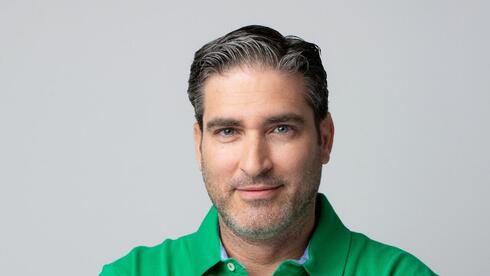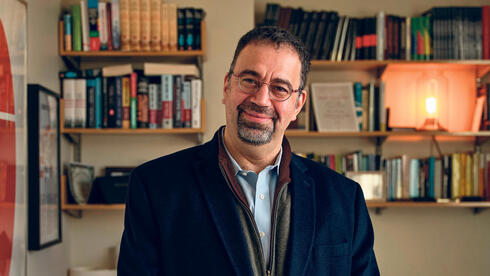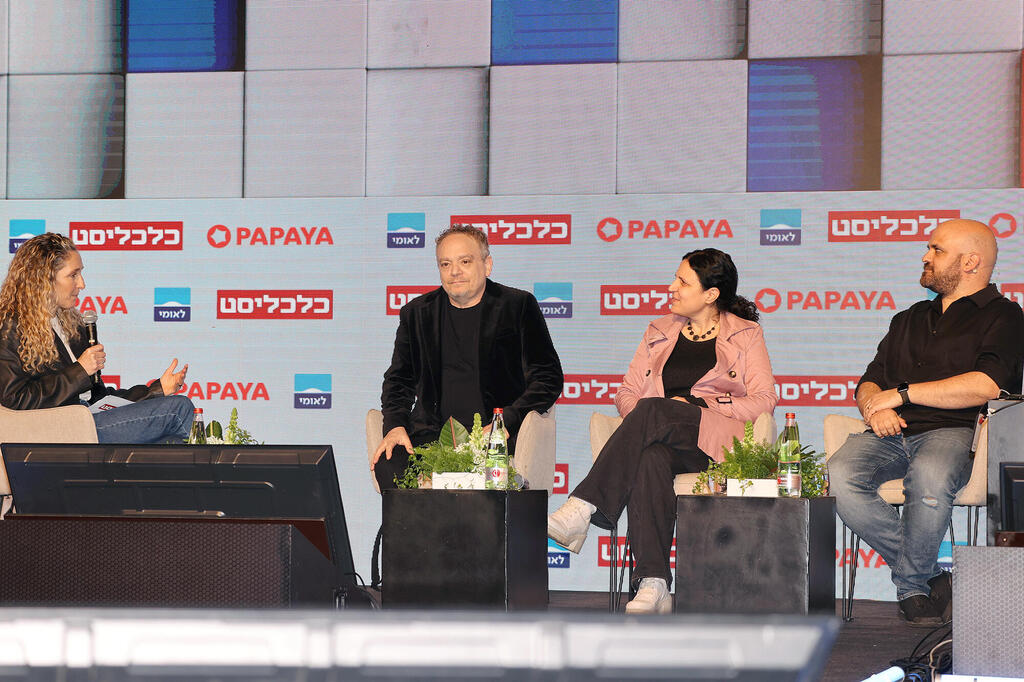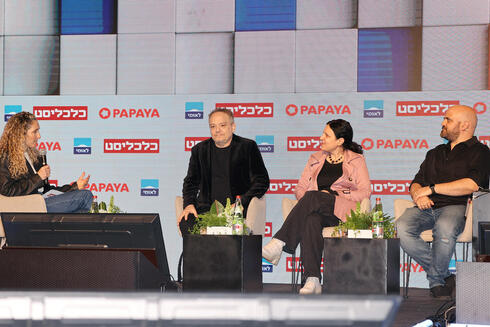
Tech TLV
"Technology won’t replace real creators. The younger generation will do things we can’t imagine"
Dr. Revital Hollander-Shabtai, musician and head of the computer science & entrepreneurship program at Reichman University spoke at Calcalist's Tech TLV at the music panel that dealt with human creation in the age of AI. Also participating in the panel were musician Izhar Ashdot and music producer Oded Davidov.
The music industry is undergoing technological transformations, revolutionizing both listening experiences and the creative process. Renowned musician Izhar Ashdot shared insights into the intersection of technology and creativity during a panel that took place at Calcalist's Tech TLV conference in collaboration with Bank Leumi and PAPAYA. Emphasizing that technology and creativity have coexisted since humans first discovered rhythmic patterns, he views AI not as gadgets but as musical instruments. Ashdot envisions AI evolving into AGI (artificial general intelligence), making it more intriguing for musicians. Music producer Oded Davidov explained how AI tools can be used to separate lyrics and playback, allowing for innovative collaborations. While technology opens new possibilities, panelists like Revital Hollander-Shabtai, musician and head of the computer science & entrepreneurship program at Reichman University, emphasized the enduring human dimension and creativity that machines cannot replace.
The music industry is going through technological upheavals, both in listening and in the creative process. How does technology affect the creative process?
Izhar Ashdot: "There is always a person involved in the use of cutting edge technology. Technology and creativity exist from the first moment, from the moment a human first learned to knock on a board. The piano was a new technology. But you are talking about digital technology and as a musician I am very curious and like to use technology. I am an innovator, because it interests me, but the ability to create music and be influenced by technology is fascinating."
You are a gadget freak. Is it another musical instrument?
Ashdot: "First of all, they’re not gadgets, but musical instruments. AI is a tool that helps creators do their work, it makes it easier and opens up possibilities - but in the end it's just a tool. When AI is smarter and becomes AGI (artificial general intelligence) - then it will be interesting."
You worked with Arik Einstein. Did you think he would sing your song after his death?
Oded Davidov: "I took a song by Izhar Ashdot, and I wanted Arik Einstein, may his memory be blessed, to sing the song. I have the song in its entirety, which includes Izhar's lyrics. It is a wonderful song - and what I do is to separate Izhar's lyrics from the playback. Thus, after extensive training, the AI reaches the point where it hears a full song, recognizes Izhar that created the song, and then separates the musical instruments. Three years ago it was imaginary and not of high quality. In the next step, I can "move" Izhar's voice and build a tool that models Arik Einstein's voice. I used tools that isolate Einstein's voice from his old recordings, and I feed this into a model that learns the voice of Arik Einstein. And on this model I place the lyrics. And when you take the lyrics with the vocal nuances, then you can actually produce a song with Eric Einstein's voice."
Isn't that scary? Isn't the human creator superfluous?
Ashdot: "I'm thinking about the generation of young musicians who don't want to imitate but to innovate."
There is a human dimension behind a work of art, there is an artist, there is an effort. Will the talent be replaced?
Revital Hollander-Shabtai: "We are human beings. Technology changes things, but we stay with what is true and traditional. Technology brings many possibilities to innovate, to create more, but it will not replace human beings and will not replace real creators. The younger generation will do different things. They have no prejudices, so they can create new things using the technology, which they will learn to use the way you learn to play the piano."
Ashdot: "That’s not quite accurate, the new creators know how to press buttons and not necessarily play the piano. I'm bad at reading music but I know how to make music. I think we have no idea what will happen in music, but it will be interesting, and it should be handled carefully."




